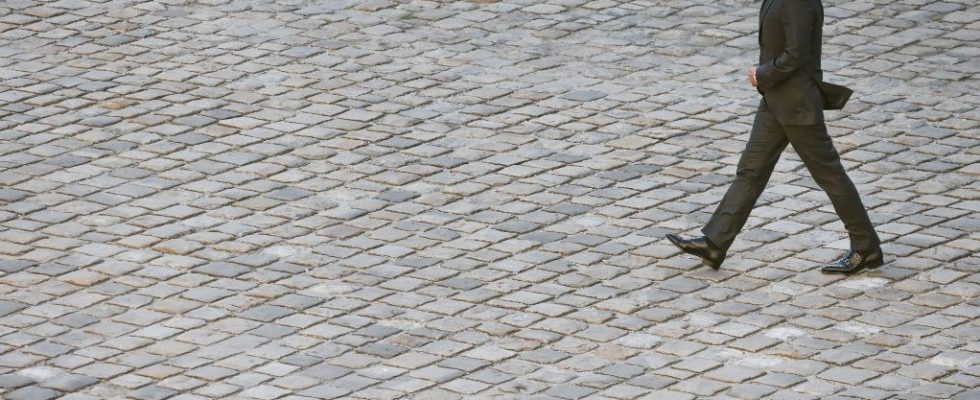It’s always a bit unpleasant when people say “no” to your invitation. This is undoubtedly even more true when you are the President of the Republic and, well, you are not really used to being told no. And what’s more, the invitation was sent on letterhead. Three party leaders therefore decided not to come to the third meeting in Saint-Denis, this Friday: Olivier Faure for the Socialist Party, Manuel Bompard for France Insoumise, and Éric Ciotti for Les Républicains. That is to say the equivalent of almost half of the opposition deputies in the National Assembly.
As a reminder, the first “Saint-Denis meeting” took place at the end of August at the Legion of Honor school, on neutral ground. Everyone was present for this unique format: without cell phones, without collaborators, without photos, with a broad, voluntarily open agenda. The party leaders, the presidents of the assemblies, the Prime Minister and, of course, the president, had worked from 3 p.m. to more than 3 a.m. The oppositions were skeptical of what they considered to be a communications exercise. The Elysée and the government, on the other hand, pointed to a success “for the democratic debate”.
Concrete though
To justify his absence this week, Éric Ciotti reiterates that he does not want to endorse a presidential communications operation. On the left, we talk a little more about the substance, explaining that there is nothing concrete, that we do not want to support a bypass of Parliament nor an agenda considered too favorable to the right and the extreme RIGHT. There will still be a bit of concrete stuff: on the institutional question, the broadening of the scope of the referendum, the facilitation of the shared initiative referendum (RIP). And even – this is very new – the possibility of a citizen initiative of an RIP is not nothing. Enough to seduce the left and the right.
But is it still worth it if half of the opposition doesn’t come? At the Elysée, we explain that yes, the doors will be open until the start of the meeting. “In view of the issues, it is not at the level to decline”, already railed, a few days ago, a regular at the palace, who hopes that the adage “those who are absent are always wrong” will be confirmed. “It’s too easy, this political society today where the constraint weighs on the person who takes the initiative.” In other words Emmanuel Macron.
Across to the base
This is the thread that the Elysée is trying to draw: for the president, the meaning of the Saint-Denis meetings lies in the continuity – remember – of the Great National Debate after the “yellow vests”, of the Citizens’ Convention on the climate and the National Councils for Refoundation, launched a year ago. “The president wants to create consensus to confront opposition with reality. There is nothing worse than those who make comments from the balcony, comforting themselves in postures. We have to share the constraint,” explained someone close to the president after the first meeting in Saint-Denis. The thing seemed all the more attractive as the form of the meeting – “in the fair way”, according to the Elysée – gave it credibility. The opposition leaders had not attacked this form.
Will those who declined the invitation this Friday pay the price? At the PS, they say that Olivier Faure could very well return to the table if events require it. With the risk, after a while, of coming across as a weather vane. But the main problem lies in the fact that the Elysée’s desire to “share the constraint” with the opposition parties is shaky from the start. There are undoubtedly not 66 million professors of constitutional law in the country, but the French have been practicing the Fifth Republic for sixty-five years and know how it works. They know who holds most of the power – the Elysée –, who has a little (Parliament), and who does not (the oppositions).
The proof: 72% of French people still voted in the second round of the presidential election, compared to 46% in the second round of the legislative elections. Ultimately, if the population is not satisfied with the president’s action, there is little chance that they will blame Eric Ciotti. It is undoubtedly frustrating for the Elysée, grappling with oppositions which often indulge in posturing. But it is the price of great power, that which the Fifth Republic offers to the president. And for six and a half years, if Emmanuel Macron has multiplied the diversions in parallel with the institutions, we have not really felt the desire to share power.

